The Zaporizhzhia Journalists’ Solidarity Center (JSC) of the National Union of Journalists of Ukraine (NUJU) has become a hub of communication and assistance not only for displaced journalists and local media but also for foreign colleagues who come to us to cover events on the front line and the life of front-line communities.
German journalist Bernhard Clasen visited the JSC for the first time in March 2023.
“Here, in your Center, I feel that I am not alone. Or rather, I am one of you. And this, in my understanding, is solidarity. This is already my second meeting with colleagues from Zaporizhzhia at the JSC. I hope that there will be a third and a fourth; I will come here every time I visit Zaporizhzhia – to chat and talk about work. Also, next time, I plan to use your protective gear. I have already tried it on – it is convenient and reliable. The first aid kit is well stocked. And, I emphasize the most important thing once again: here, I am one of you, and we are together,” said Bernhard Clasen.
Bernhard has been actively working in Ukraine for the tenth year; he first came here to cover the events on the Maidan [Nezalezhnosti Square]. And then, there were events in the Crimea and the East – Donetsk and Luhansk. He learned the Ukrainian language, so he freely communicates with people wherever his journalistic fate takes him. During the year of russia’s full-scale invasion of Ukraine, Bernhard visited almost all “hot” spots – in Bucha, Izium, Kherson, Kharkiv, Zaporizhzhia, as well as in Odesa, Uzhhorod, Poltava, and Chernivtsi. From everywhere, he prepares photo reports for the German newspaper TAZ and several websites.
On his first visit to Zaporizhzhia, Bernhard Clasen visited the settlements that were most affected by enemy shelling, filmed a residential building in the city that had been bombed the day before, and talked a lot with people. This time, he shot a photo reportage in the settlement of Huliaipole near the front.
I was in this city for the first time before the full-scale war in 2018. I was interested in the historical figure of Nestor Makhno, so I visited his house museum and was in the local history museum. I really liked the town – it’s so cozy, green and elegant, friendly people. What I saw now caused a shock. Everything is broken, solid ruins and fires. Now, there are few people in Huliaipole. Those with whom I spoke were very happy. I remembered a woman who said that she would not go anywhere because this is her city. People there live in basements; it is difficult for them. And yet they do not despair, says Bernhard.
And continues:
“I was most impressed by their eyes… There was sadness in them, but they shone with faith and hope. And people smiled at me. And it was difficult for me. I said goodbye to them and knew that soon, I would be in a safe place, and they would remain where the shelling was, where every moment could be the last. I will write about this so that my fellow citizens in Germany know how terrible the war in Ukraine is.”
With a kind word, the German journalist remembered the heroic employees of the Main Department of the State Emergency Situations Service (SESS) in the Zaporizhzhia Region, with whom he traveled to the front-line territories, and who, risking their lives, constantly deliver water, food, other humanitarian aid, even food for dogs and cats there that were left without owners. Bernhard also expressed his gratitude to Yuliya Barysheva, the head of the Department of Relations with Mass Media and work with the public of the Main Department of the SESS. Let’s add that Yuliya is a member of the Secretariat of the Zaporizhzhia regional organization of the NUJU and constantly cooperates with the NUJU‘s JSC.
Bernhard Clasen also talked about the touching meetings in Germany with Ukrainian immigrants, answered many questions, and thanked for the interesting conversation. According to him, he did not have such meetings in any city in Ukraine.
In commemoration of the meeting, Zaporizhzhia media representatives presented Bernhard with symbolic gifts.
Call the Zaporizhzhia JSC at 096 277 5352 (Nataliya Kuzmenko and Valentyna Manzhura, the Zaporizhzhia JSC coordinators). The Center’s address is 152 Sobornyi Avenue.
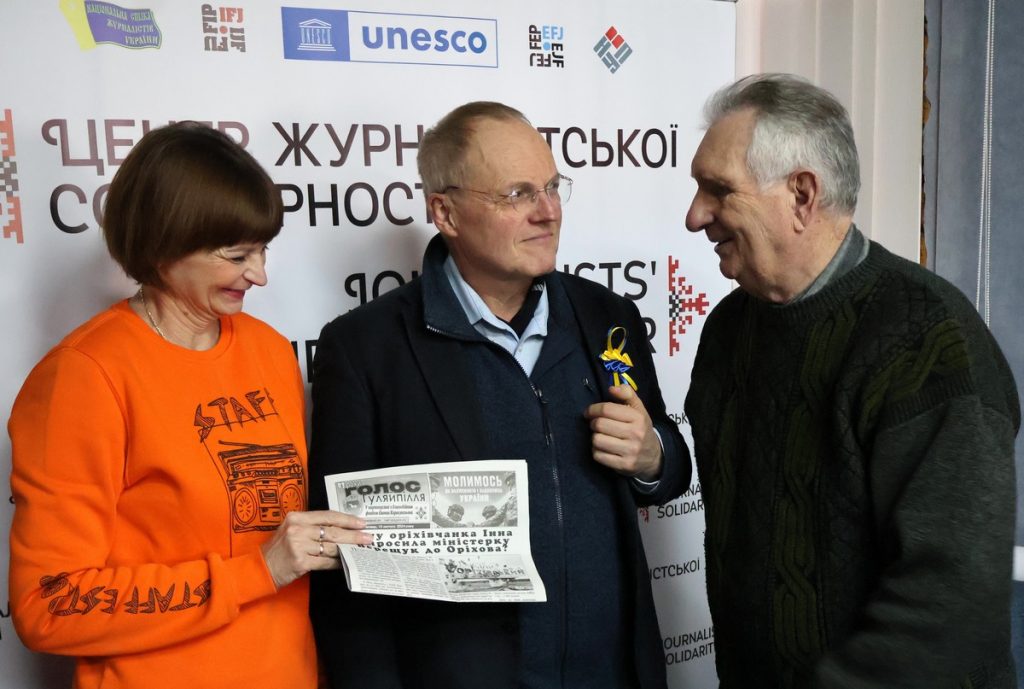

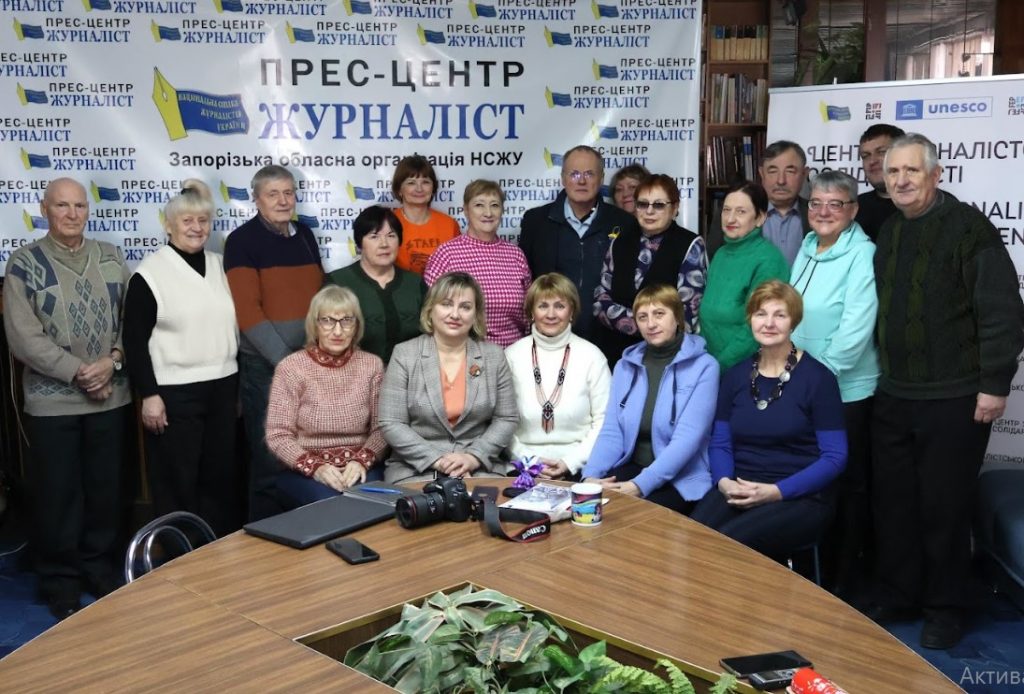
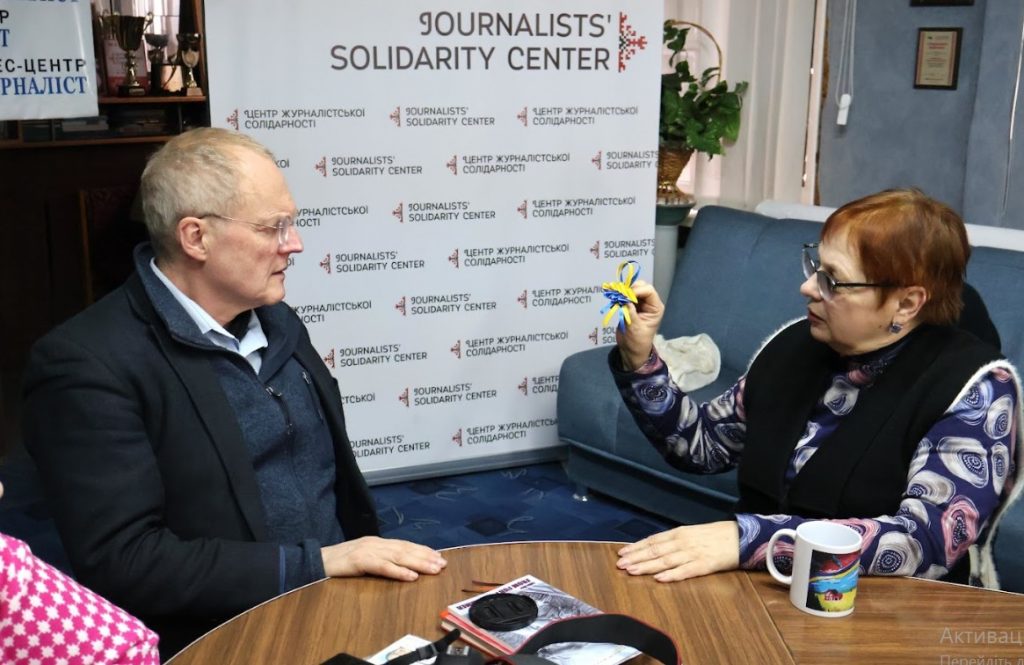
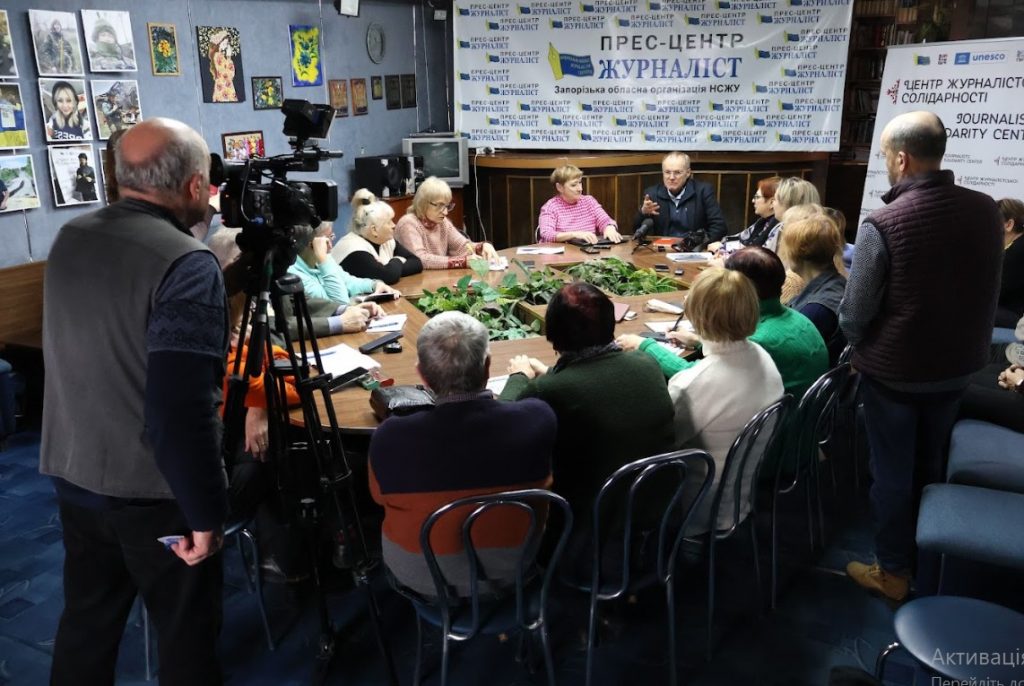

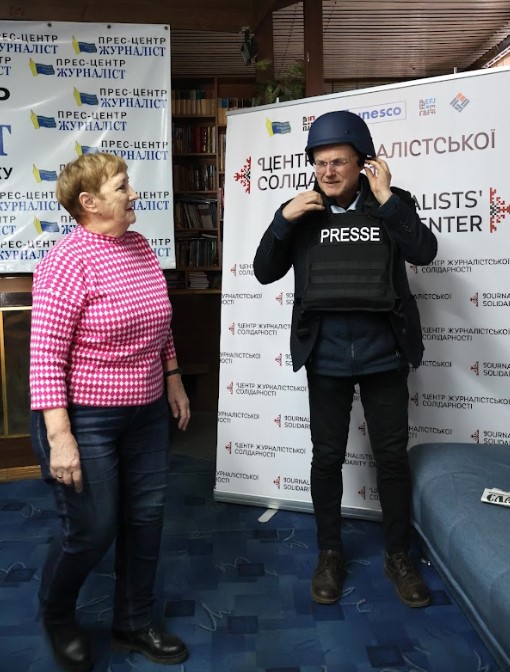
ABOUT JSC
The Journalists’ Solidarity Centers is an initiative of the NUJU implemented with the support of the International and European Federations of Journalists and UNESCO. The initiative is designated to help media representatives working in Ukraine during the war. The Centers operate in Kyiv, Lviv, Ivano-Frankivsk, Chernivtsi, Zaporizhzhia, and Dnipro and provide journalists with organizational, technical, legal, psychological, and other types of assistance.
ABOUT UNESCO
UNESCO is the United Nations Educational, Scientific, and Cultural Organization. It contributes to peace and security by promoting international cooperation in education, sciences, culture, communication, and information. UNESCO promotes knowledge sharing and the free flow of ideas to accelerate mutual understanding. It is the coordinator of the UN Action Plan on the Safety of Journalists and the Issue of Impunity, which aims to create a free and safe environment for journalists and media workers, thus strengthening peace, democracy, and sustainable development worldwide. UNESCO is working closely with its partner organizations in Ukraine to provide support to journalists on the ground.
The designations employed and the presentation of material throughout this digest do not imply the expression of any opinion whatsoever on the part of UNESCO concerning the legal status of any country, territory, city, or area or its authorities or concerning the delimitation of its frontiers or boundaries.
The authors are responsible for the choice and the presentation of the facts contained in this digest and for the opinions expressed therein, which are not necessarily those of UNESCO and do not commit to the organization.
Valentyna Bystrova
Photo by Dariya Zyrianova and Nina Derkach

 THE NATIONAL UNION OF
JOURNALISTS OF UKRAINE
THE NATIONAL UNION OF
JOURNALISTS OF UKRAINE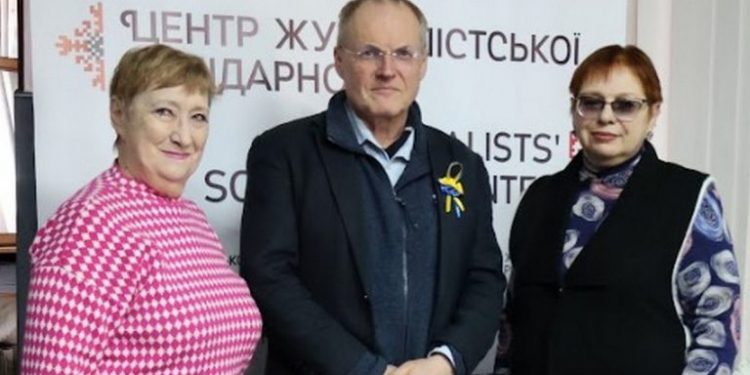
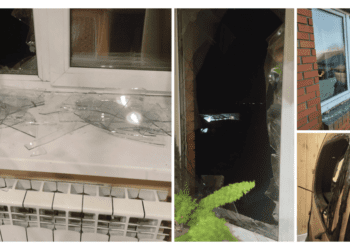
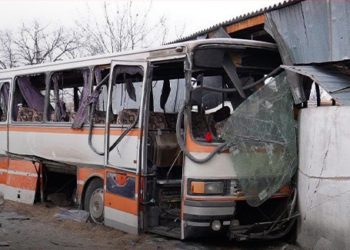
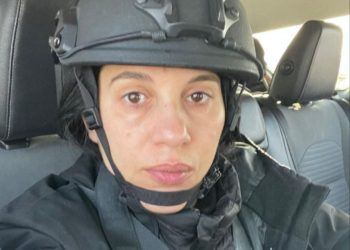













Discussion about this post